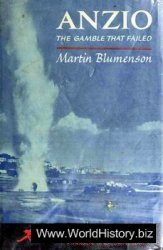Democratic Republic of Vietnam (DRV). Ho Chi Minh declared independence for the DRV on September 2 1945. Dominated from the beginning by the Lao Dong (Workers’ or Vietnam Communist) Party, the DRV, seated in Hanoi, was the de facto if weak and unrecognized central government for all Vietnam until war broke out with France in December 1946. The dry returned to Hanoi following the Geneva agreement in 1954. In accordance with that agreement, the DRV administered Vietnam north of the 17th Parallel, and so became known as North Vietnam, pending elections on reunification. President Ngo Dinh Diem of the Republic of Vietnam in Saigon refused to hold those elections, so the Lao Dong Party sought reunification by other means. With the accomplishment of that objective in 1975, the drv was formally superseded by the Socialist Republic of Vietnam (srv) in 1976. WST. See also august revolution.
Dempsey, Gen Sir Miles (18961969). Br. As a young officer in the Royal Berkshire Regiment, Dempsey fought on the Western Front from 1916 to 1918 and then participated in the Iraq operations of 1919-20. A thorough professional, with a deep concern for his men, he took his regiment’s 1st Battalion to France in 1939 and commanded the 13th Brigade in the counterattack at Arras in May 1940, and also in the battle on the Ypres-Comines Canal which bought extra time for the Dunkirk evacuation. Appointed to command XIII Corps in December 1942, he led it in Sicily and Italy before he was recalled in January 1944, at Montgomery’s request, to command the British Second Army, a role which he performed soundly and successfully throughout the campaign in Northwest Europe.. After the war he held senior posts in Southeast Asia and the Middle East, retiring in 1947. PJS.
Denikin, Lt Gen Anton Ivanovieh
(1872—1947). Russian. “White” leader during the Russian Civil War. Denikin defeated the “Reds” in the Caucasus, early 1919, and launched a major Ukrainian offensive, taking Kiev and threatening Moscow. His intransigent nature alienated the Ukrainian and Polish “Whites”; with the Red counteroffensive, his armies crumbled and he went into exile.
Dentz, Gen Henri Fernand (18811945). Fr. Vichy High Commissioner in Syria during the Syrian campaign in 1941.
Depth charge. Cylinder filled with high explosive and set off by an adjustable fuse operated by water pressure. Developed during World War I as an anti-submarine weapon. Usually used in patterns, rolled over the stern and fired from mortars. During World War II, adapted for use from aircraft.
Derby, Earl of (1865-1948). Br. Director-General of Recruiting, October 1915-June 1916, and Secretary of State for War, December 1916-April 1918.
De Robeck, Adm of the Fleet Sir John (1862-1928). Br. Commander of naval forces in the Dardanelles 1915. See also Dardanelles (l9L5) and GALLIPOLI (l915- 16).
Desert campaign. (1940—43) see
WESTERN DESERT CAMPAIGN.
Desert Rats see seventh
ARMOURED DIVISION (BRITISH).
Destroyer. A class of warship smaller than cruisers but larger than frigates. Their origin lies in the torpedo boats of the last quarter of the 19th century, but as their role was seen as not only launching torpedoes but also destroying enemy torpedo boats they came to be known as destroyers. They have increased in size from the original 300-400 tons up to about 5,000 tons and their role has been greatly extended from the original function of covering the battle fieet. In both world wars they were extensively used for convoy escort and especially anti-submarine work. Subsequently, the term has been adopted for guided missile ships. ANF.
Deterrence. Deterrence is the attempt by one nation or group of nations to prevent another nation or group of nations doing something unacceptable by the threat of the former inflicting unacceptable costs on the latter. Traditionally, deterrence was primarily exerted by the threat of denying the aggressor the possibility of success in its attack - deterrence through denial - with certain elements of punishment in the human and economic costs that fighting would incur and the losses that might ensue in an unfavourable peace settlement. The advent of strategic bombing added a new potency to the direct-punishment aspects of deterrence and these were increased fundamentally by the advent of nuclear and thermonuclear weapons. Deterrence by the threat of nuclear punishment has come to dominate the strategic scene. Deterrence relies on the capability to inflict unacceptable damage on one’s opponent, the communication of the threat to do so and the circumstances in which the threat might be carried out, and most of all on the credibility of the threat in the mind of the adversary. The growth of broadly equal invulnerable nuclear capabilites in the hands of both superpowers has created a situation of mutual deterrence, where each side acts with considerable caution in its relations with the other. This, however, has tended to undermine the guarantee of extended deterrence to America’s allies that was once relatively easily given. This has required the elaboration of more sophisticated deterrent strategies based on concepts of escalation and limited war that contain some elements of traditional “denial”, both nuclear and conventional. Smaller nuclear powers follow policies of minimum deterrence based on a small invulnerable retaliatory force powerful enough to deter nuclear attacks upon their national territories. EJG.
De Valera, Eamonn (1882-1975). Born in New York, Irish revolutionary; column commander in Easter Rising, 1916; escaped from Lincoln prison to fight in Troubles; opposed 1921 Treaty; as Irish prime minister, 1932-48, 195154 and 1957-59, and president, 1959—73, remained irreconcilably anti-English.




 World History
World History









